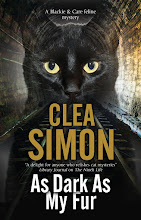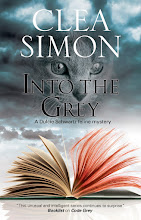How reliable is memory?
According to neuroscientists, not very. While we may view any particular memory as a continuous film of a past scene, those who study how the brain processes describe it as something more like a collage. As a 2012 Psychology Today article summarized, every time we conjure a memory, we are not so much reviewing a complete set of stored data as re-configuring a complex scene from disparate parts. In other words, every memory is newly re-assembled, and even if the pieces are accurate they may be prone to reinterpretation...
(To read more, please jump over to Crimespree,the wonderful crime fiction/mystery blog that is hosting me today: here!)
Subscribe to:
Post Comments (Atom)










1 comment:
Recently I found a diary that i would written once I was seventeen. Like such a big amount of individuals, my reminiscences of that point feel extraordinarily vivid and vital. Psychological analysis backs this up, systematically finding that adolescent reminiscences area unit unco powerful and simply accessed. this can be hardly shocking provided that the cusp of adulthood is such a vital amount find our identity, forming new relationships and creating life-changing plans. Rehearsing those reminiscences helps United States of America to feel grounded. however however reliable area unit those memories? Do they tell United States of America the reality or do they solely tell United States of America what we wish to remember?
This question lies at the crux of Ritesh Batra's new film, The Sense of Associate in Nursing Ending, during which Tony Webster receives a letter out of the blue, bequeathing him the diary of an in depth friend from a few years agone. because the film unfolds, it becomes clear that Webster, brightly pictured by Jim Broadbent, has created a narrative for himself that solely part reflects reality. he's forced to update not solely his own, however different life stories, as he comes face to face with new items of proof and a few uncomfortable truths.
This film provides a stunning illustration of one thing that memory scientists have celebrated for an extended time - that some aspects of human memory area unit terribly malleable. once it involves knowing wherever we have a tendency to live, or what color a tomato is, we have a tendency to area unit pretty reliable. however once it involves recollecting journeys we've taken or conversations we've had, our reminiscences area unit way less correct.
Apart from anything, these reminiscences for expertise - our autobiographical reminiscences - will solely ever be made from our perceptions of what happened, which can well disagree from somebody else's. we have a tendency to additionally create inferences, either at the time or later, that area unit heavily influenced by what we all know and the way we have a tendency to feel. most significantly, we have a tendency to tend to giving up of details that do not sit well with our sense of United Nations agency we have a tendency to area unit or United Nations agency we wish to be. And by a similar token, we have a tendency to practise and embellish those components of the expertise that make sure our identity and support our life goals.
So ought to we have a tendency to be distressed that we have a tendency to area unit frequently writing and re-writing our own history like this? On the contrary, psychologists have argued that this flexibility is a vital a part of being a cheerful creature. The capability to actively form our narrative allows United States of America to own a coherent and stable sense of identity.
Nevertheless, we've to acknowledge that each one expertise influences United States of America, despite whether or not we've acutely aware access thereto or not. And, like Webster, we have a tendency to might sometimes be forced to confront things that we have a tendency to had by selection written out of our story. Similarly, we have a tendency to might come back up against new proof or testimony that prompts United States of America to re frame reminiscences that we've command for an extended time. generally this may be painful, different times it is cathartic. For me, revisiting my seventeen year-old self therein battered recent diary offered no massive revelations however it did strike a cord in me that i used to be approximately as grown-up and complex as I had thought i used to be at the time! As Webster concludes, "in the tip, our reminiscences area unit simply a story we've told regarding our lives".
Post a Comment